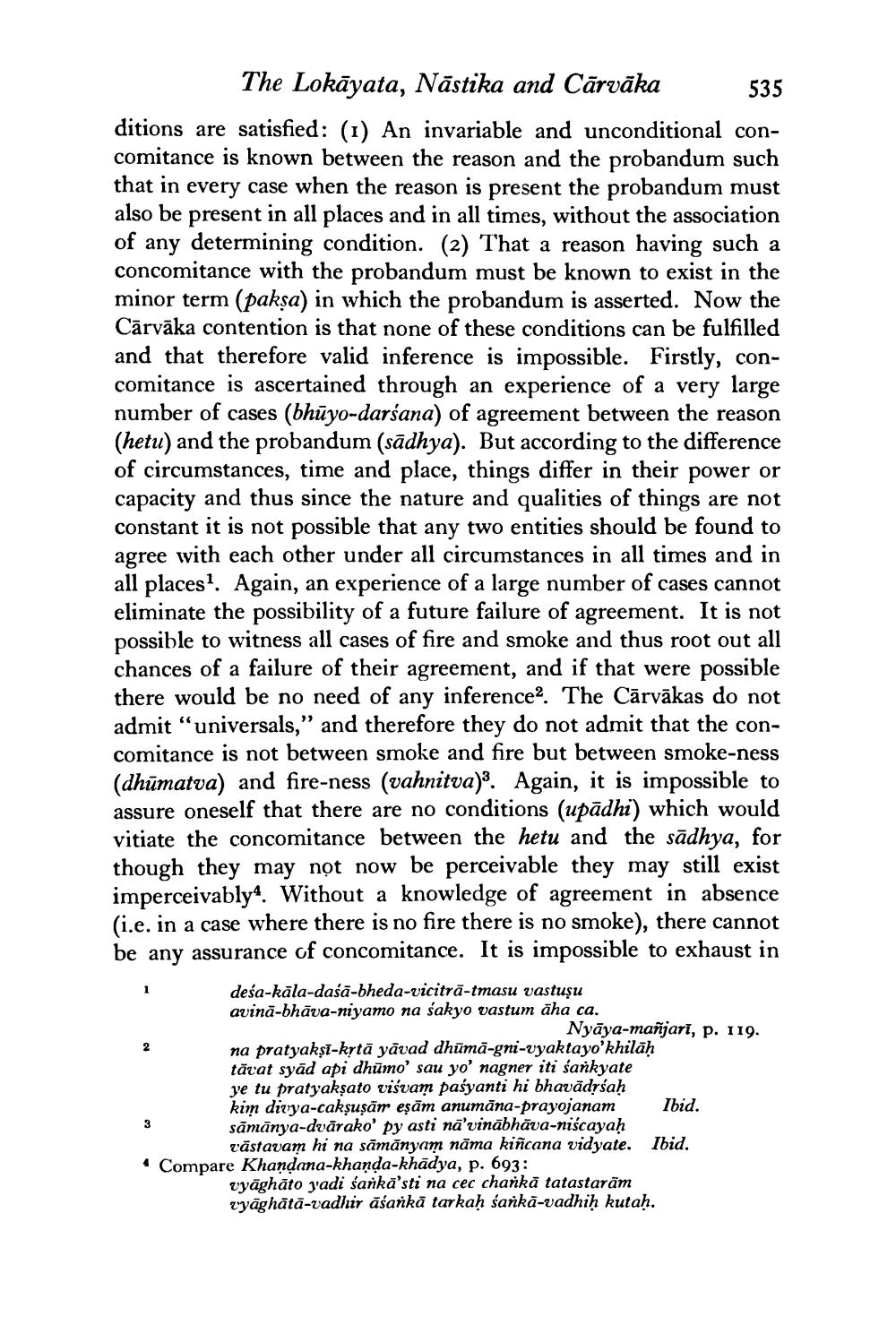________________
The Lokāyata, Nāstika and Cārvāka 535 ditions are satisfied: (1) An invariable and unconditional concomitance is known between the reason and the probandum such that in every case when the reason is present the probandum must also be present in all places and in all times, without the association of any determining condition. (2) That a reason having such a concomitance with the probandum must be known to exist in the minor term (paksa) in which the probandum is asserted. Now the Cārvāka contention is that none of these conditions can be fulfilled and that therefore valid inference is impossible. Firstly, concomitance is ascertained through an experience of a very large number of cases (bhūyo-darśana) of agreement between the reason (hetu) and the probandum (sādhya). But according to the difference of circumstances, time and place, things differ in their power or capacity and thus since the nature and qualities of things are not constant it is not possible that any two entities should be found to agree with each other under all circumstances in all times and in all places?. Again, an experience of a large number of cases cannot eliminate the possibility of a future failure of agreement. It is not possible to witness all cases of fire and smoke and thus root out all chances of a failure of their agreement, and if that were possible there would be no need of any inferenceThe Cārvākas do not admit "universals,” and therefore they do not admit that the concomitance is not between smoke and fire but between smoke-ness (dhūmatva) and fire-ness (vahnitva). Again, it is impossible to assure oneself that there are no conditions (upādhi) which would vitiate the concomitance between the hetu and the sādhya, for though they may not now be perceivable they may still exist imperceivably4. Without a knowledge of agreement in absence (i.e. in a case where there is no fire there is no smoke), there cannot be any assurance of concomitance. It is impossible to exhaust in
deśa-kāla-daśā-bheda-vicitrā-tmasu vastuşu avinā-bhāva-niyamo na sakyo vastum āha ca.
Nyāya-mañjari, p. 119. na pratyaksi-kytā yāvad dhūmā-gni-vyaktayo'khilāh tävat syad api dhūmo' sau yo' nagner iti sarkyate ye tu pratyakşato viśvam paśyanti hi bhavādrsah kim divya-cakşuşārr eşām anumāna-prayojanam Ibid. sāmānya-dvārako' py asti nā'vinābhāva-niscayah
tāstavam hi na sāmānyam nāma kiñcana vidyate. Ibid. • Compare Khandana-khanda-khādya, p. 693:
vyāghāto yadi sarkā'sti na cec chankā tatastarām tyāghātā-vadhir āśaňkā tarkah sanka-vadhih kutah.




